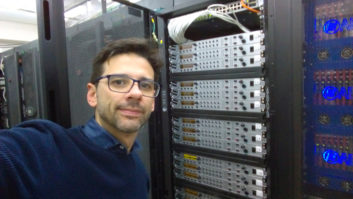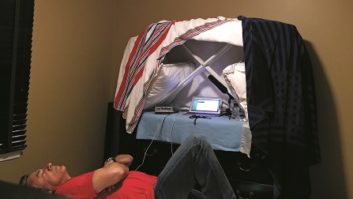
Assemble a group of radio vets and inevitably the talk will turn to on-air personalities.
In most cities, large and small, names will surface of local legends who at one time ruled the airwaves. Localities might have four or five big names, some of whom would span more than a decade of success before moving on to larger markets, syndication or television shows. These personalities were so big that, although they were “faceless” radio stars, people would stop them on the street and ask for autographs.
It’s easy to dismiss these memories as little more than quaint longing for the past. A lot people apparently do.
Recently, a new program director at a classic rock station in a top 20 market told me with a straight face that his strategy to win in morning drive was to play more music. Nothing could possibly be more entertaining, he claimed, than playing the same 350 songs with a professional generic DJ who doesn’t need to remember that his audience ever fell in love with the music he’s playing.
It’s bad enough that radio and television are being positioned by media writers as “old media.” If we don’t figure out a path to generate local personalities, in the end we may actually have to accept this insult.
Build your own ecosystem
There never has been an easy way to develop on-air talent.
Certainly a large minor-league system — with small markets growing personalities — helped. Here, at least, there was a numbers game going on, with ambitious women and men working their craft in small towns so they might have a chance to be a star in a larger city. The industry supported this development system with various competitions for personality of the year for format and market size.
But the times they were a-changin’, and now voice-tracking, whether local or long distance, has for the most part struck a fatal blow to this ecosystem. Become a superior voice-tracking talent and the reward is more of the same on other stations. This type of talent sure can sound great — nice voice … no mistakes … funny quips … sells liners well — but is about as memorable as flipping a light switch.
I can’t pretend to have all the answers to this serious dilemma, but I can offer a few suggestions.

Don’t laugh. You could be looking at your next morning guy. iStockphoto/Carlos Santa Maria
- Hire program directors who believe that real personalities can boost success.
- Test people on the air who seem to have potential. Your list of possibilities should include local comedians, journalists, sportscasters, bartenders and callers to your radio station who are aired a lot and are consistently entertaining when they phone in. If necessary, try these people out late at night or put them on one of your HD channels and let them get repetitions to see if they improve.
- Advertise tryouts. This is a lot of work and you may have to go through hundreds of people, but these events are terrific stunts and I have seen a number of talented people surface out of nowhere.
- Don’t just put personalities on the air without a development plan of aircheck sessions and at least weekly coaching.
- Budget, and then really spend, enough money to hire true talent. Save tens of thousands of dollars now and you may be risking hundreds of thousands or even millions later on when your property is devalued due to lack of interest.
Finally, wouldn’t it be nice if the big companies would consider rewarding promising on-air college talent with scholarships and/or the opportunity of an entry-level position after graduation?
While perhaps not as visible as they once were, a number of college radio stations still have students who are on fire about radio. I had the pleasure of meeting many of them at a convention just a few years ago — likeable, articulate kids with the right kind of energy. Let’s get smarter about talent development before our own arrested development becomes a permanent condition.
The author is president of Lapidus Media. Contact him at [email protected].










